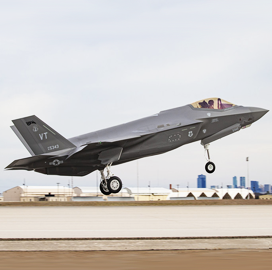Canada is set to enter the final round of negotiations with the U.S. government and Lockheed Martin to procure 88 F-35 fighter jets to replace the Canadian air force’s CF-18 fleet.
The competitive sourcing process involved an assessment of aircraft offerings against a set of criteria such as cost, economic impacts and capabilities, Canada’s public services and procurement department said Monday.
In an earlier announcement, the Canadian government said it would more than $15 billion for the procurement of fighter jets, associated equipment and weapons, training and sustainment services.
The government has also started preparing the two main operating bases at 4 Wing Cold Lake and 3 Wing Bagotville to host the future fighter aircraft. Canada aims to receive a new fighter aircraft as early as 2025.





